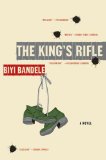Summary | Excerpt | Reviews | Read-Alikes | Genres & Themes | Author Bio

Perspectives on World War II
by Robert Cowley, Stephen AmbroseEssays written by some of the most respected and well-known military historians of our time (Stephen Ambrose, John Keegan, Caleb Carr, William Manchester etc.), describe the horror and heroism of World War II.
Essays on the most pivotal military conflict of the twentieth century written by renowned historians and presented by the editor of the acclaimed What If?
No reader interested in twentieth-century history and the Second World War will want to miss this collection of fascinating essays. In more than two hundred thousand words and twenty maps, some of the most respected and well-known military historians of our time describe the horror and heroism that defined a generation: the chaos of Europe and the Nazi reign of terror prior to D day; the far-flung fight in East Asia and the Pacific; the secret struggle of intelligence services; the final Allied push into Central Europe; and the atomic end in Japan.
Stephen E. Ambrose tells the miraculous story of a single American company that captured a bridge over the Rhine - a river Hitler had considered a barrier never to be broken. John Keegan takes us inside Berlin in the Spring of 1945 during the most intense city siege in history. William Manchester reminds us of the vital importance of the RAF's radar towers during the Battle of Britain, one of the truly hair-raising "narrow misses" of the war. In two pieces, Caleb Carr illuminates the only war Hilter won - the Blitzkrieg campaign over Poland in 1939 - and brings to life the German "Black Knight," Field Marshal Gerd von Rundstedt, who so inspired his troops in late 1944 that he may have prolonged the war another six months.
Essays from other illustrious contributors include Antony Beevor on Stalingrad; Victor Davis Hanson on General Curtis LeMay; Eliot A. Cohen on Churchill; and Alistair Horne on Montgomery.

If you liked No End Save Victory, try these:

by Biyi Bandele
Published 2009
Taut and immediate, at once somber and exhilarating, The King's Rifle is the first novel to depict the experiences of black African soldiers fighting in Asia in the Second World War.
First published in the UK as Burma Boy.

by Tom Brokaw
Published 2001
Tells the stories of a generation, America's citizen heroes and heroines who came of age during the Great Depression and the Second World War and went on to build modern America.